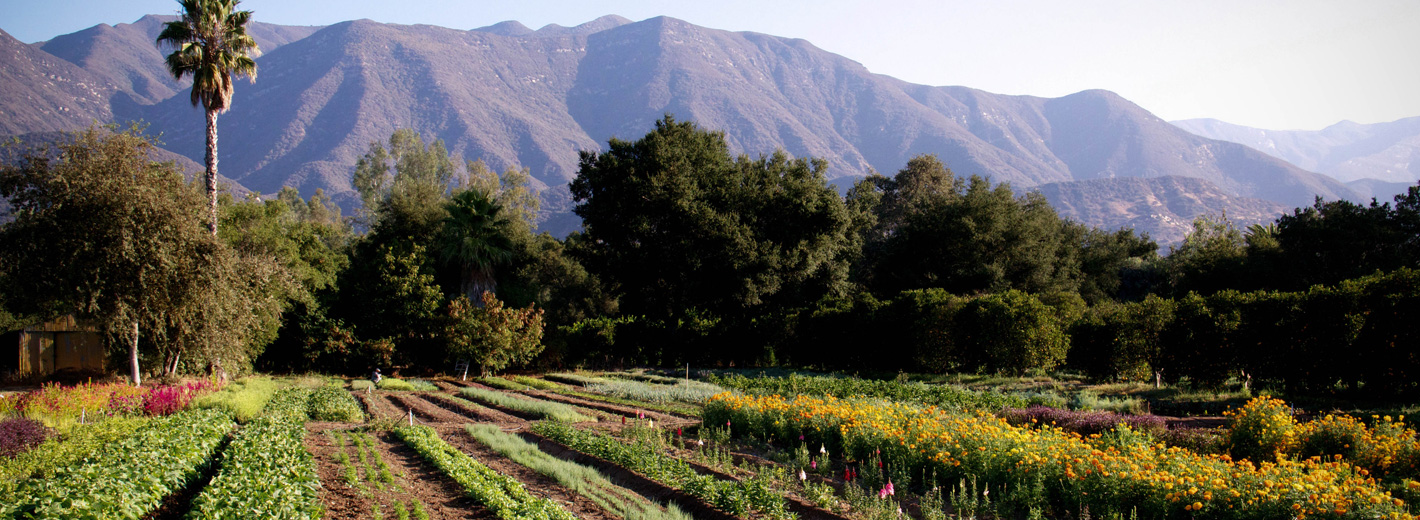
Ask Mickey: What’s Good for You — and the Planet
- by bonappetit
What’s the controversy about sustainability and the government’s dietary guidelines I keep hearing about? Does any of it change what I should be eating?
At Bon Appétit, we believe that what’s good for our bodies also tends to be good for the environment. While this connection between personal and environmental health has been part of the nutrition discussion for years, it’s not currently considered by the government when developing nutrition policy.
In late February, a group of experts in nutrition, medicine, and public health released their recommendations to the United States Department of Agriculture (USDA) for the 2015 Dietary Guidelines. The USDA uses these recommendations to design the guidelines, which are revised every five years, and are meant to inform both you, the consumer, and government nutrition programs like school lunch. For the first time, the committee made the bold recommendation to include sustainability in the report. They stated:
The major findings regarding sustainable diets were that a diet higher in plant-based foods, such as vegetables, fruits, whole grains, legumes, nuts, and seeds, and lower in calories and animal-based foods is more health promoting and is associated with less environmental impact than is the current U.S. diet.
This was included in spite of a warning from Congress not to consider environmental factors. (Some politicians argue that environmental issues are outside the scope of expertise of committee members.) Not surprisingly, the beef and dairy industries expressed dismay at the news. They, too, argue that these are two separate issues.
Replacing meat and dairy with plant-based options even one day per week significantly reduces water usage and greenhouse gas emissions. It takes approximately 1,850 gallons of water to produce a pound of beef but only 39 gallons of water to produce a pound of vegetables (see PDF). And while all livestock has a carbon footprint, ruminant animals (cattle, goats, sheep, bison) release the most greenhouse gas emissions by far. Ruminants have a unique digestive system that constantly generates methane, a greenhouse gas that’s 20 to 25 times more powerful than carbon dioxide. And dairy products comes from methane-producing cows, of course: it takes approximately 10 pounds of milk to make 1 pound of cheese (source).
Whether you choose to eat less meat and dairy for personal or environmental health — or both — you’ll benefit from eating more plants. Here are a few easy swaps to improve your health while helping out our planet:
- Replace red meat with beans, tofu, sustainable fish, or locally produced poultry and eggs at one meal per day (or more).
- Substitute half the meat in meat sauces, lasagnas, or other dishes with mushrooms (here’s how) or other hearty vegetables. They add bulk, flavor, and nutrition for few calories.
- Skip the cheese and top your pasta or other dishes with a squeeze of citrus and fresh herbs. Try sliced avocado on your sandwich.
- When eating in Bon Appétit’s cafés, look for food labeled with any of the following menu icons: Vegan, Sustainable Seafood, and/or Farm to Fork.
 The USDA has invited the public to comment on the guidelines through April 8 — click the link to do so — then will likely release the final 2015 dietary guidelines by the end of this year. Stay tuned!
The USDA has invited the public to comment on the guidelines through April 8 — click the link to do so — then will likely release the final 2015 dietary guidelines by the end of this year. Stay tuned!
About Ask Mickey: At Bon Appétit, we know there’s a lot on your plate that you worry about. Making good food choices helps you avoid unwanted pounds, work or study (and sleep!) better, and form long-lasting healthy eating habits. In the Ask Mickey column, Bon Appétit Management Company registered dietitian nutritionists offer tips on “chewing the right thing” and answer your nutrition questions. (Mickey, aka Michelina, is a particular feisty Italian grandmother who continues to inspire us.) Email your questions and feedback to [email protected].